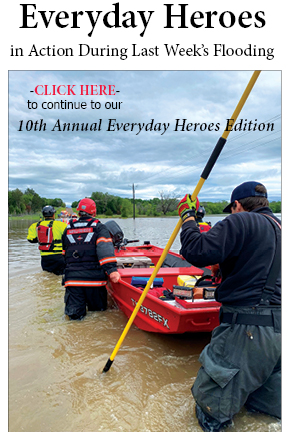by Carrie Classon
This week, Mandy and Tom, my former sister-in-law and brother-in-law, came to visit.
Except I don’t call them that because, when I divorced, Mandy announced: “Since you can’t be my sister-in-law anymore, you’ll have to be my sister!” That’s the kind of person Mandy is.
Mandy hasn’t changed much in the thirty-plus years I’ve known her. But four years ago, Tom had a major stroke. It was touch-and-go for a while and, when he did survive, the prognosis wasn’t good. The doctors didn’t know if he would ever walk or talk again. This was especially hard to believe because Tom was always talking.
Tom is what everyone would call a character—and almost everyone would say that with a smile. Tom lived in Alaska most of his life. He was a fisherman and a hunter and he worked for the oil company up there. Tom attracted new friends the way a dog attracts fleas—except they were invariably nice fleas and he was rarely bitten.
“Mandy! Did you know Tom is sitting on the beach in a hot tub with three women?” a nosy neighbor informed Mandy one day.
Tom had sawed a giant oil drum half, perched it up on some rocks, filled it with water, and built a fire underneath. He was soaking in this clothing-optional contraption when Mandy got the call.
“Yup, I know.”
Tom would often go missing in the evenings. When he reappeared, he had made new friends and invited them home for supper.
“Mandy! These folks are from Australia!”
I don’t know how many meals Mandy prepared on a moment’s notice for people who been strangers an hour earlier. But Mandy and Tom had friends from all over the world and, when they traveled, it was to visit their widespread network of friends. Vacationing with Tom was always an adventure.
“Where did Tom go?”
“He was just with us.”
“Did we lose him?”
We would retrace our steps a few hundred yards and discover Tom, up to his ears in an old VW Bug, assisting its owner in fixing the window mechanism so it would roll up and down again.
“I’ve fixed a million of these!” Tom explained to the car’s owner, who spoke no English.
Tom surprised everyone, after his stroke. He did learn to walk again, slowly, with a cane. Then Mandy got him an electric scooter so he could get to the pub on his own. But Tom lost his ability to speak. Physically, he could still talk, but he lost the part of his brain where the words were kept.
This is a terribly hard way to live, it seems to me.
Still, if anyone could survive this with good humor, it would be Tom. He can now say “yeah” and “no” and he can make a long string of nonsense sounds with the right intonation that sounds for all the world as if he is saying something. It is amazing how often I know exactly what he means.
Tom and Mandy spent the night and, the next morning, I had a list of touristy things we could do, but they preferred just to sit in the early spring sunshine. Tom was pointing at something in the distance and smiling.
“Is it alive?” Mandy asked, “Is it a bird?”
All day, Mandy guesses what Tom would like her to notice, would like to share with her. I thought how lucky Mandy was to have that built up that reserve of patience, spending forty-four years with Tom. And I thought how lucky Tom was—to be Tom.
Till next time,
Carrie
Carrie Classon’s memoir, “Blue Yarn,” will be released in April 2019. Learn more at CarrieClasson.com.




